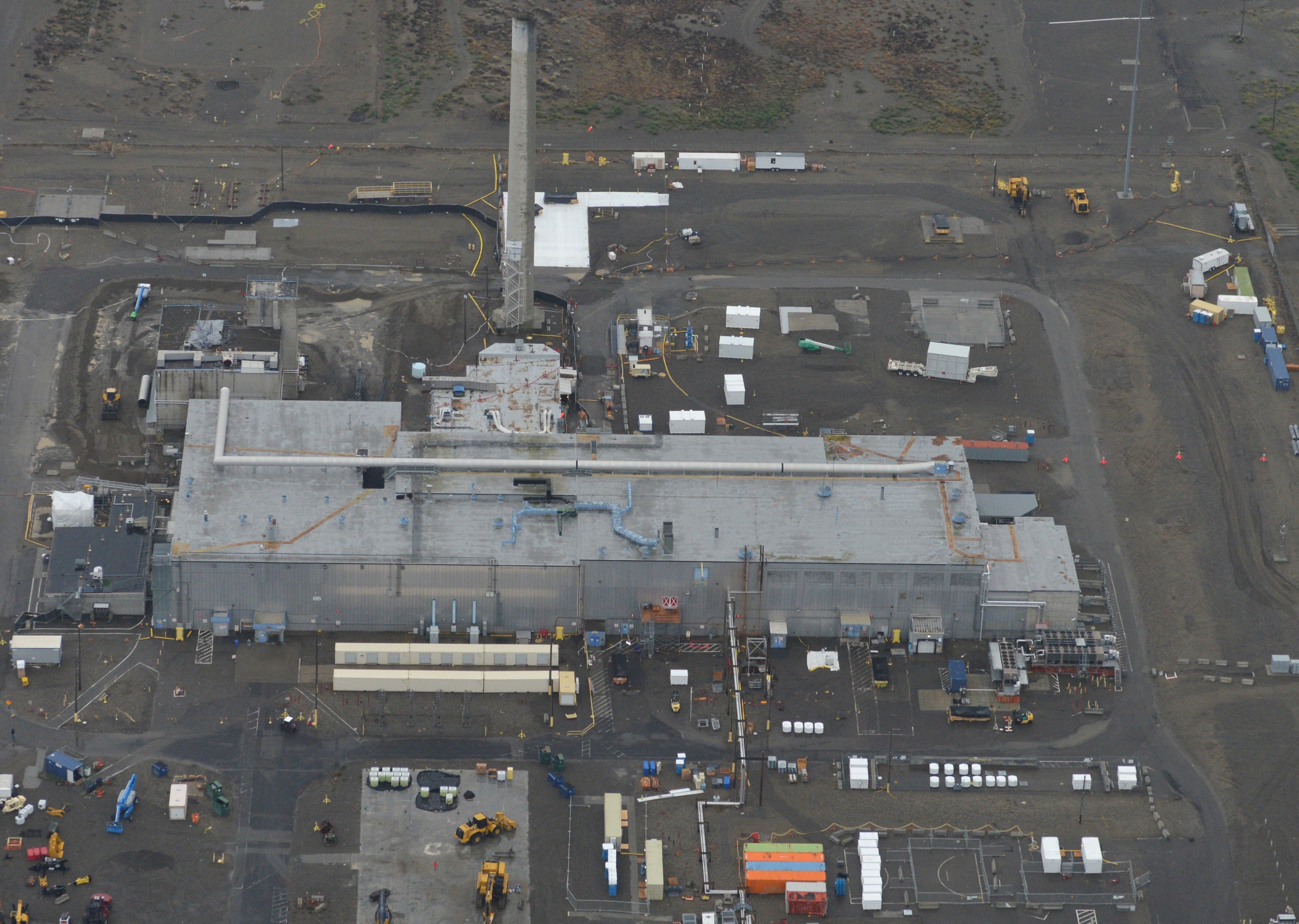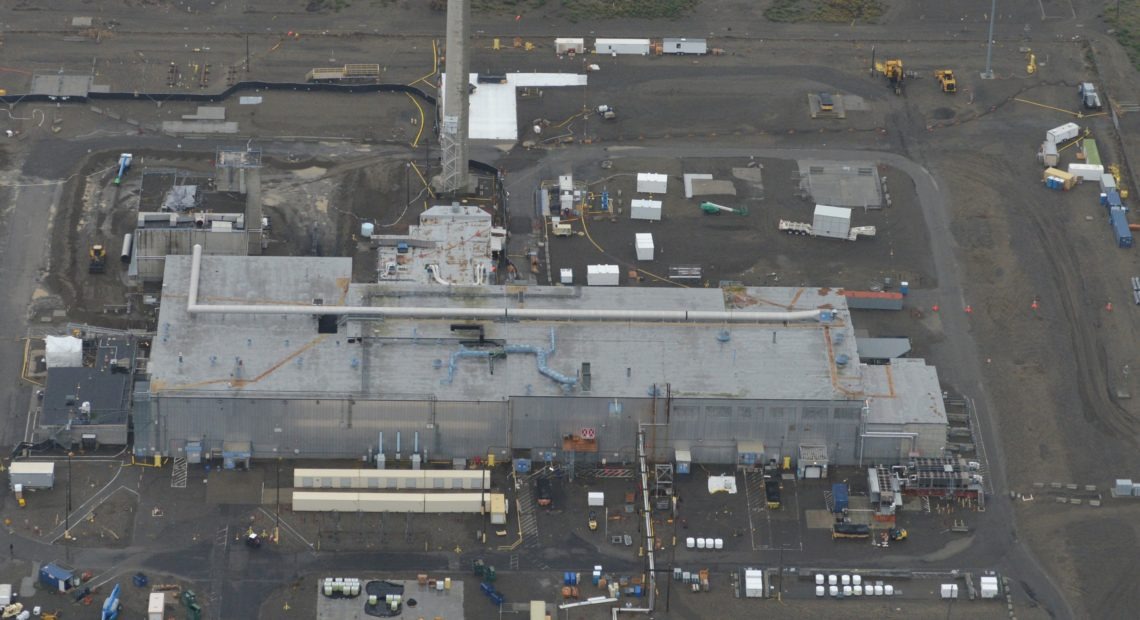
Hanford’s Plutonium Finishing Plant Demolition Job Reaches Even More Delicate Phase
Listen
At Hanford, in southeastern Washington, contractors have just completed much of the demolition work at the site’s Plutonium Finishing Plant. But now crews have to finish the job.
And that’s the tough part.
Demo Timeline
In December 2017, demolition of the Plutonium Processing Plant — or PFP as locals call it — was in trouble. There were contaminated cars, radioactive particles found by the public highway and contamination even found on, and inside, workers.
The plant work shut down for 9 months while the contractor came up with a new safety plan.
Jason Casper is in charge of the job for CH2M Hill Plateau Remediation Company. He was brought on to straighten up the project after the contamination events.
He said enhanced controls or better communication, using the suggestions from workers at the site and better use of spraying water and fixative, all have helped to keep fresh contamination events at bay.
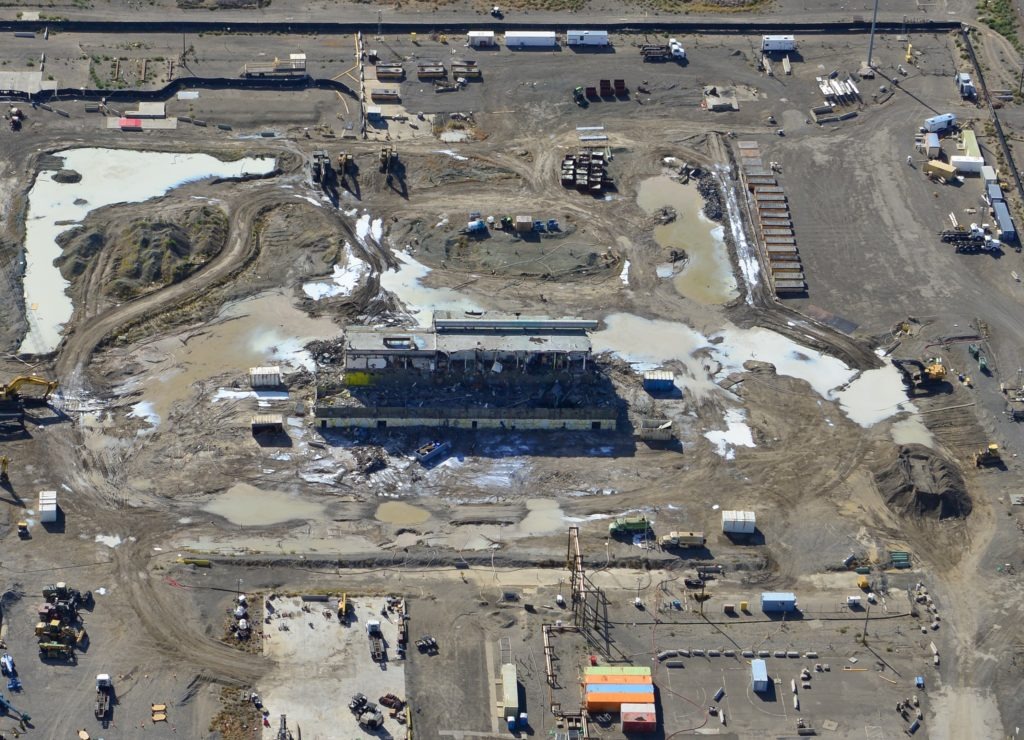
The demolition of Hanford’s Plutonium Finishing Plant as shown in this October 2019 photo is over 90% complete. Courtesy CH2M HILL Plateau Remediation Co.
“The most basic thing that we use to control contamination, is the application of a water mist,” Casper explained. “Just like putting water on a road, water keeps the dust down. Fixative is basically paint, and applying paint to those surfaces that may have contamination keeps that contamination locked into place so we can package it appropriately.”
90% There
More than 90% of the demo is now complete. But that leaves some of the toughest, most contaminated parts of the plant to go after — including two plutonium processing lines, and underground utility tunnels full of water with pipes holding plutonium.
Casper said that on this new phase of the project, he’s mostly worried about the people he’s in charge of, and of industrial accidents.
“We have a lot of equipment that we’re running,” he said. “So making sure people stay safe in all respects. From not having issues with equipment, not having issues walking to the work area, to the radiological area and making sure it’s not being spread.”
The History
PFP started in 1949. It’s where the federal government turned liquids with plutonium into hockey-puck-sized solid plutonium “buttons” for nuclear weapons. It was also known as the “Z” Plant, because it was the last stop for plutonium processing before being shipped off Hanford.
READ: Letter from Ty Blackford of CH2M Hill Plateau Remediation on demolition update
Related Stories:

Boom Town: New Northwest-made podcast explores Western uranium mining and Hanford downwinders
Creator and host Alec Cowan’s shadow during a tour of the Sunday Mine Complex, a complex of five uranium mines in the Big Gypsum Valley near Paradox, Colorado, on Feb.
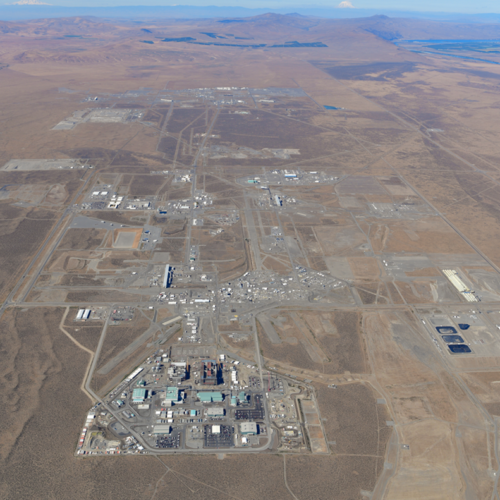
After years of negotiations, new government Hanford plan stirs up plans to treat radioactive waste
A 2021 aerial photo of Hanford’s 200 Area, which houses the tanks and under-construction Waste Treatment Plant, in southeast Washington. (Credit: U.S. Department of Energy) Listen (Runtime 1:01) Read There
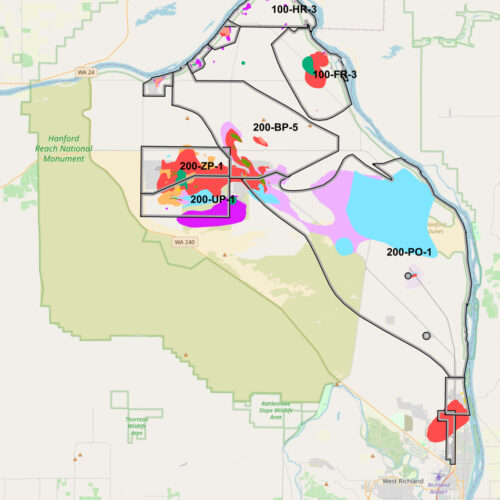
New tool tracks contaminated groundwater at Hanford, other DOE sites
A snapshot of the Hanford cleanup site showing the various groundwater plumes across the site. (Credit: U.S. Department of Energy / Office of Environmental Management) Listen (Runtime 1:00) Read A

